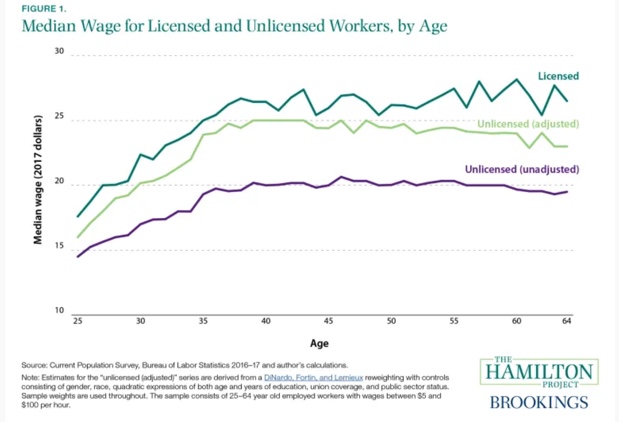Research shows occupational licensing increases inequality and deters economic mobility
Economics is rarely known for consensus, which is why in areas where there is some, it makes it all the more significant. One such topic is occupational licensing.
Researchers generally agree that occupational licensing presents a big burden to workers as well as the economy.
In addition to preventing individuals from choosing occupations in which they would be most successful, occupation licensing restricts supply, thereby raising prices. Licensing also leads to inefficient allocation of resources as individuals are deterred from productive endeavors, leading to deadweight loss.
Not only is licensing costly but most of the costs associated with it tend to fall on low-income individuals. This is mainly because low-income individuals are the ones less likely to have the time and resources to dedicate to getting licensed. This keeps them out of jobs, which then perpetuates poverty and increases income inequality.
One place that we can look at for evidence of this phenomenon is Florida.
Research evidence
Before Florida passed the Occupational Freedom and Opportunity Act, it was one of the most heavily licensed states in the nation. On average, it took 693 days to obtain an occupational license in Florida.
As a result, a lot of people were kept out of jobs.
A 2019 Cato/YouGov poll found that 45% of welfare recipients reported that the lack of an occupational license had prevented them or someone they knew from getting a job for which they were otherwise qualified.
Things are different in Florida now, of course. But this doesn’t erase the suffering that has already been felt by numerous Floridians.
Another mechanism through which licensing perpetuates poverty and increases inequality is through the wage premium that it endows on licensed workers. Because licensing tends to push unlicensed workers out of the workforce, it limits the supply of goods and services. This, in turn, enables licensed workers to charge more for their labor, leading to a state-sanctioned wage premium.
Indeed, a study by Morris Kleiner and Alan Krueger found out that “licensing is associated with about 14% higher wages.”

And because people who can’t get a license usually exit the labor market or end up in less lucrative jobs, they remain poorer than they otherwise would be. Licensing makes it perpetually harder for them to move up the wage ladder, increasing inequality.
One study done by Tingting Zhang, in fact, found that, between 1998 and 2004, occupational licensing increased inequality across the entire wage distribution in Canada.
conclusion
Even for a good economy, occupational licensing is generally harmful to low-income workers.
But at a time when the economy is ailing, loosening licensing laws presents an especially useful tool to put low-income workers back into the labor force, ensuring opportunity as well as economic mobility.